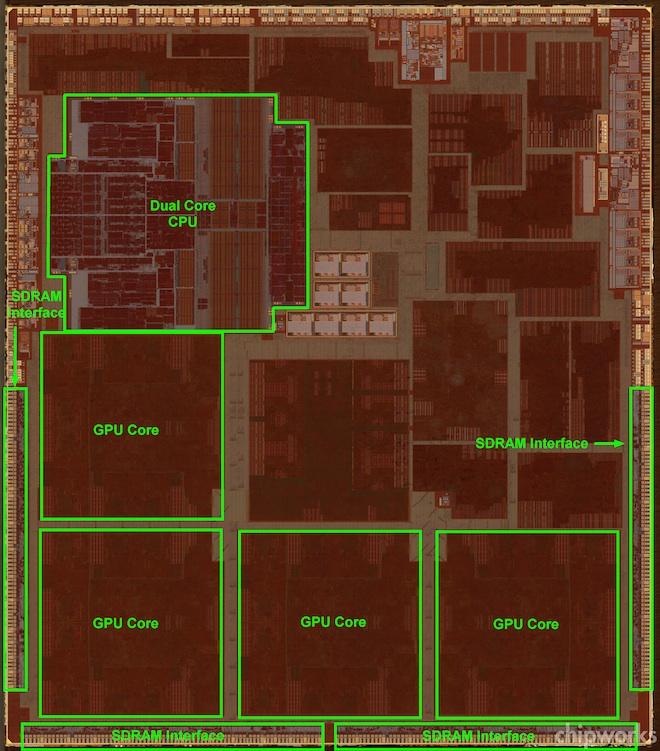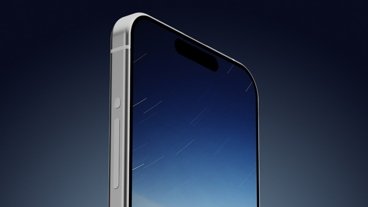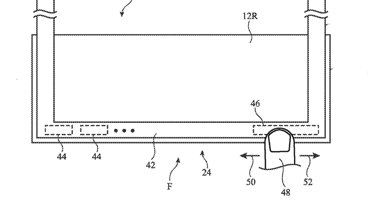It's "inevitable" that Apple will merge its Mac and iOS devices at some point, but such a change is not expected to happen for years, in the eyes of one industry watcher.
Shaw Wu with Sterne Agee said in a note to investors on Tuesday that he believes it will take Apple some time to optimize its Mac OS X operating system for the ARM processors currently found in the iPad and iPhone.
Intel processors are currently much more powerful for running intensive Mac applications, as well as for development. But he believes that ARM processors will eventually become powerful enough to replace Intel chips.
In his view, making Apple's entire product line based on custom-built ARM-based processors would simplify the architecture of its devices, and also help to create a more seamless experience for users.
Wu also noted that the Mac represents just 14 percent to 18 percent of Apple's total revenue. In comparison, the iPhone accounts for between 45 and 50 percent of the company's revenue, and the iPad is 20 to 25 percent.
Wu's take was issued in response to a report that surfaced on Monday from Bloomberg, which indicated that Apple's engineers are confident that the company's A-series custom chip designs will one day be powerful enough to run the company's desktop and laptop machines. ARM-based silicon in Apple devices is currently limited to iOS devices.
Monday's report also suggested a change to ARM processors is not likely to take place "in the next few years." But it also portrayed a shift to proprietary chip designs as an "inevitable" transition for the company in the future.
Apple is said to have a team dedicated to the project, with engineers working to design a lineup of machines that rely on a common chip design. Apple already employs this approach with its current lineup of iPhones, iPads and iPods.
A potential switch to ARM chips would pose a challenge to Intel, Wu said. He noted that Apples' 11-inch MacBook Air gets four to five hours of battery life under heavy use, compared to 10 hours of battery life with an ARM-based iPad.
Reports suggesting Apple could power future Macs with ARM processors are not new. One recent story issued in October also said Apple has "deliberated" moving its lineup of Mac computers away from Intel processors, though such a change was said to not be "imminent."
Apple has made headway in designing its own custom silicon for the iPhone and iPad. Earlier this year, rumors suggested Apple was looking to use its own ARM processors in upcoming iterations of the MacBook, especially in power-critical applications like the thin-and-light MacBook Air.
 Neil Hughes
Neil Hughes







-m.jpg)






 Chip Loder
Chip Loder
 Wesley Hilliard
Wesley Hilliard
 Marko Zivkovic
Marko Zivkovic

 Christine McKee
Christine McKee
 Amber Neely
Amber Neely

 Malcolm Owen
Malcolm Owen








95 Comments
ARM based Macs will come but Intel based Macs will remain. While hiring AMD veteran Jim Mergard adds more CPU design expertise at Apple, it does not necessary mean they will drop Intel. Hec, they may license the basic x86 design from Intel or AMD and make their own desktop CPUs. Time will tell.
This would make playing games on iMac more difficult than it already is. And for what? Little Appstore games are fun for a few minutes, but real huge game productions would never make it to the Mac if it were like that. Not going to happen.
Nothing a few years out in the CE or computer world is inevitable. For all we know in a few years time Intel may have chips for the iPhone that blow ARM away, use less power and Apple uses those in their mobile devices instead, and keeps using improved Intel chips in Macs. Nothing is guaranteed here.
I think that: "portrayed a ship to proprietary" maybe should be: "portrayed a shift to proprietary". All of that being said I see ARM as a great move for a good portion of the Mac Users out there. For many though giving up Intel is next to impossible. If Apple can get another 2X performance improvement next year without massive clock rate increases we will be well on our way to ARM based Macs. Interesting timing here, the August 2012 issue (16) of EDN just came across my desk. Plastered across the front cover is this: "PROCESSOR ARCHITECTURES: ONE TO RULE THEM ALL". I haven't read the article in depth yet but they do put forward the idea that ARM has the potential to be that architecture. Funny thing was I skimmed the article and found no mention of Apple.
Nothing a few years out in the CE or computer world is inevitable. For all we know in a few years time Intel may have chips for the iPhone that blow ARM away, use less power and Apple uses those in their mobile devices instead, and keeps using improved Intel chips in Macs. Nothing is guaranteed here.
I'm not so sure. I'm not a processor expert but I believe there is something fundamental about ARM chips which makes them pretty hard to compete with when taking into consideration power consumption/speed.
As laptops are already running red hot, power consumption becomes more and more important, favouring ARM designs going forward.
Intel may one day come out with a quantum processor, but that technology is still a long way away. Till then, my money is on ARM (which it is literally as I own ARM stock).